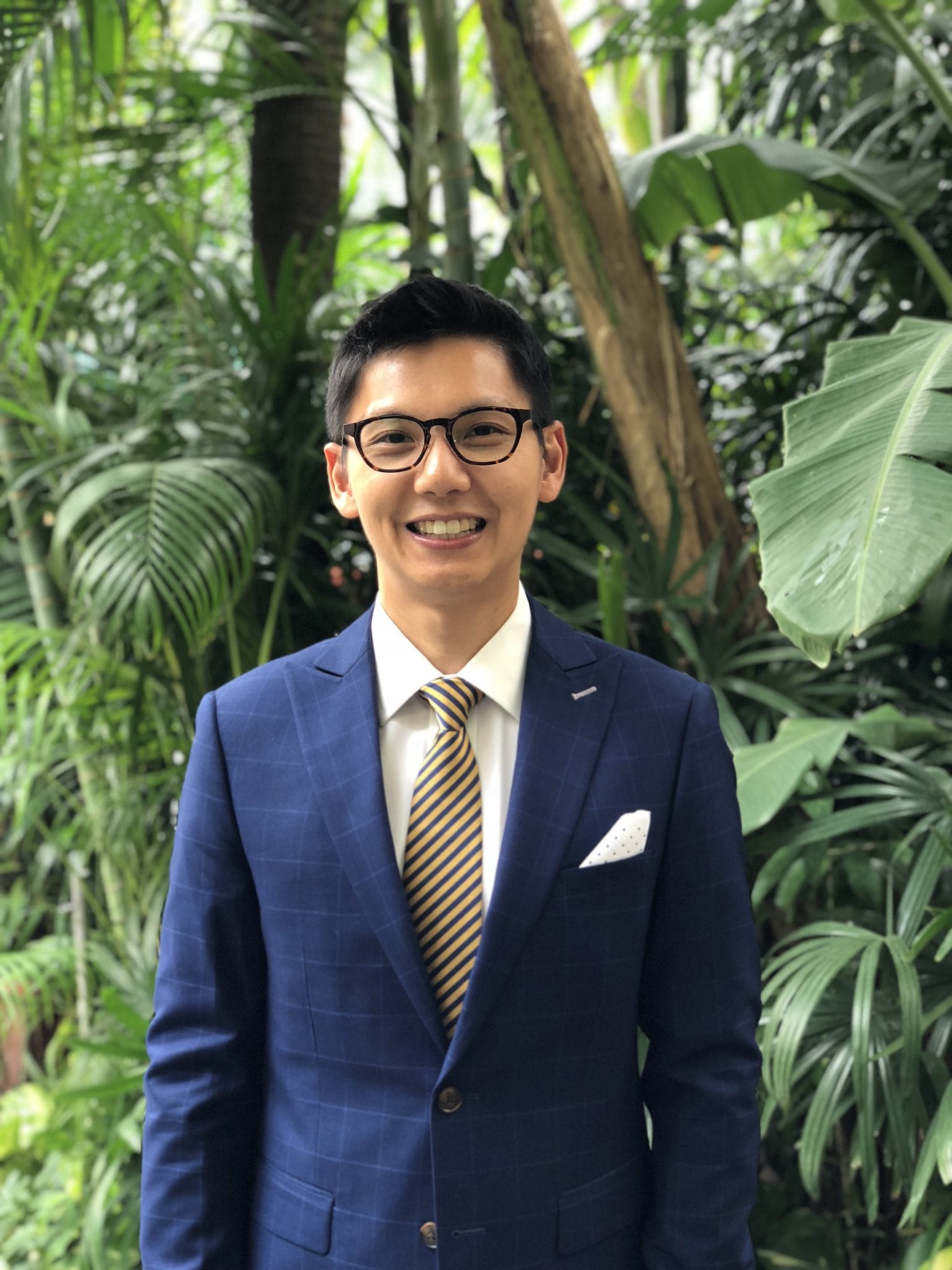Chin-Hao Huang is Associate Professor of Political Science at the National University of Singapore, with appointments in both the Lee Kuan Yew School of Public Policy and Yale-NUS College. From July 2024, he serves as co-chair of the international affairs programme at the Lee Kuan Yew School of Public Policy. He is also the Head of Studies for Global Affairs and the J Y Pillay Fellow at Yale-NUS College. His research and teaching focus on international relations, with an empirical emphasis on China and Southeast Asia. His work examines the extent to which the conventional narrative of power politics accounts for the patterns of cooperation and conflict in historical and contemporary Asia, and how countries with disparate capacities in the region develop the requisite norms, consensus, and institutional mechanisms to achieve security.
He has written three books, including, most recently, Power and Restraint in China’s Rise (Columbia, 2022), which received Honorable Mention for the T.V. Paul Best Book in Global International Relations. Other books include State Formation through Emulation: The East Asian Model (Cambridge, 2022) and Identity in the Shadow of a Giant: How the Rise of China is Changing Taiwan (Bristol, 2021). Beyond these books, his research has appeared in disciplinary journals such as International Organization, Perspectives on Politics, Foreign Policy Analysis, Cambridge Review of International Affairs, The China Quarterly, The China Journal, Asian Survey, Contemporary Southeast Asia, and International Peacekeeping, and in edited volumes through Oxford University Press and Routledge, among others. He currently serves on the editorial boards of Political Science Quarterly and Contemporary Security Policy. Huang’s work has been featured in media outlets including CNBC Asia, ABC News, Bloomberg, BBC, and Financial Times.
Raised in Bangkok, Thailand, he is a graduate of Georgetown University and the University of Southern California, where he received his Ph.D. In 2014, he was awarded the American Political Science Association’s Foreign Policy Section Best Paper Award, and he was the recipient of the Lee Kong Chian NUS-Stanford University Distinguished Fellowship on Contemporary Southeast Asia in 2018-2019. He has testified on China’s foreign affairs before the U.S.-China Economic and Security Review Commission, U.S. Congress. He has also served as a consultant for U.S. and European foundations, governments, and companies on their strategies and policies in Asia. Until 2009, he was a researcher at the Stockholm International Peace Research Institute, and prior to that worked with the Freeman Chair in China Studies at the Center for Strategic and International Studies in Washington, D.C.
Select Publications
Books
Huang, C. 2022. Power and Restraint in China’s Rise. Contemporary Asia in the World Series. New York: Columbia University Press.
Honourable Mention, T.V. Paul Best Book Award, Global International Relations Section, International Studies Association, 2024.
Reviewed in The China Quarterly; Parameters; The Developing Economies; and Journal of Peace Research.
Huang, C. and Kang, D. 2022. State Formation through Emulation: The East Asian Model. Cambridge: Cambridge University Press.
Reviewed in Journal of Chinese Political Science; Choice; and Perspectives on Politics.
Gartner, S., Huang, C., Li, Y., and James, P. 2021. Identity in the Shadow of a Giant: How the Rise of China is Changing Taiwan. Bristol: Bristol University Press.
Refereed Articles and Chapters
Huang, C. and Ho, S. 2024. “Domestic Determinants of Southeast Asia’s Relations with the United States and China,” Contemporary Southeast Asia, vol. 46, no. 1, pp. 1–18.
Huang, C. 2024. “The Unintended Consequences of U.S. Deep Engagement in the South China Sea,” Cambridge Review of International Affairs, vol. 37, no. 1, pp. 103–124.
Huang, C. and Kang, D. 2023. “Critical Dialogue: Review of The Rise and Fall of Imperial China,” Perspectives on Politics, vol. 21, no. 3, pp. 1045–1050.
Huang, C. 2023. (First view online). “Strong-State Restraint as a Legitimation Strategy: Evidence from the South China Sea,” Foreign Policy Analysis, vol. 19, no. 2.
Huang, C. and Kang, D. 2022. “State Formation in Korea and Japan, 400–800 CE: Emulation and Learning, not Bellicist Competition,” International Organization, vol. 76, no. 1, pp. 1–31 (lead article).
Huang, C. 2022. “China’s Role in Southeast Asia in 2021: Reassurance, Resolve, and Resurging Competition,” in Southeast Asian Affairs, edited by Daljit Singh and Hoang Thi Ha (Singapore: ISEAS Publishing), pp. 60–72.
Huang, C. and Jayaraman, A. 2021. “Nudging through Consensus: ASEAN’s Role in Haze Mitigation and Environmental Governance,” Asian Survey, vol. 61, no. 6, pp. 883–916.
Huang, C. and Kang, D. 2019. “Beyond Military Deterrence and the Multidimensionality of International Relations in East Asia,” in Cross-Domain Deterrence: Strategy in an Era of Complexity, edited by Erik Gartzke and Jon Lindsay (Oxford: Oxford University Press), pp. 317–334.
Huang, C. and James, P. 2014. “Blue, Green, or Aquamarine?: Taiwan and the Status Quo Preference in Cross-Strait Relations,” The China Quarterly 219, pp. 670–692.
Huang, C. and Ismail, O. 2014. “China-Africa Relations: A New Security Paradigm,” in The Security Activities of External Actors in Africa, edited by Olawale Ismail and Elisabeth Sköns (Oxford: Oxford University Press), pp. 15–38.
Huang, C. 2013. “Strategic Adaptation or Normative Learning? Understanding China’s Evolving Approach toward Peacekeeping in Africa,” Journal of International Peacekeeping, vol. 17, no. 3, pp. 248–271.
Gill, B. and Huang, C. 2013. “China and UN Peacekeeping,” in Providing Peacekeepers: The Politics, Challenges, and Future of UN Peacekeeping, edited by Paul Williams and Alex Bellamy (Oxford: Oxford University Press), pp. 139–158.
Huang, C. 2012. “Peacekeeping, Sovereignty, and Intervention,” in Chinese Foreign Policy, edited by Emilian Kavalski (London: Ashgate), pp. 337–348.
Huang, C. 2012. “PLA Involvement in International Peacekeeping and Humanitarian Assistance and Disaster Relief,” in Learning by Doing: The PLA Trains at Home and Abroad, edited by Roy Kamphausen, David Lai, and Travis Tanner (Carlisle: Strategic Studies Institute), pp. 259–295.
Huang, C. 2012. “Principles and Praxis of China’s Peacekeeping,” in China’s Evolving Approach to Peacekeeping, edited by Marc Lanteigne and Miwa Hirono (London: Routledge), pp. 15–29.
Huang, C. 2011. “Principles and Praxis of China’s Peacekeeping,” International Peacekeeping, vol. 18, no. 3, pp. 257–270.


